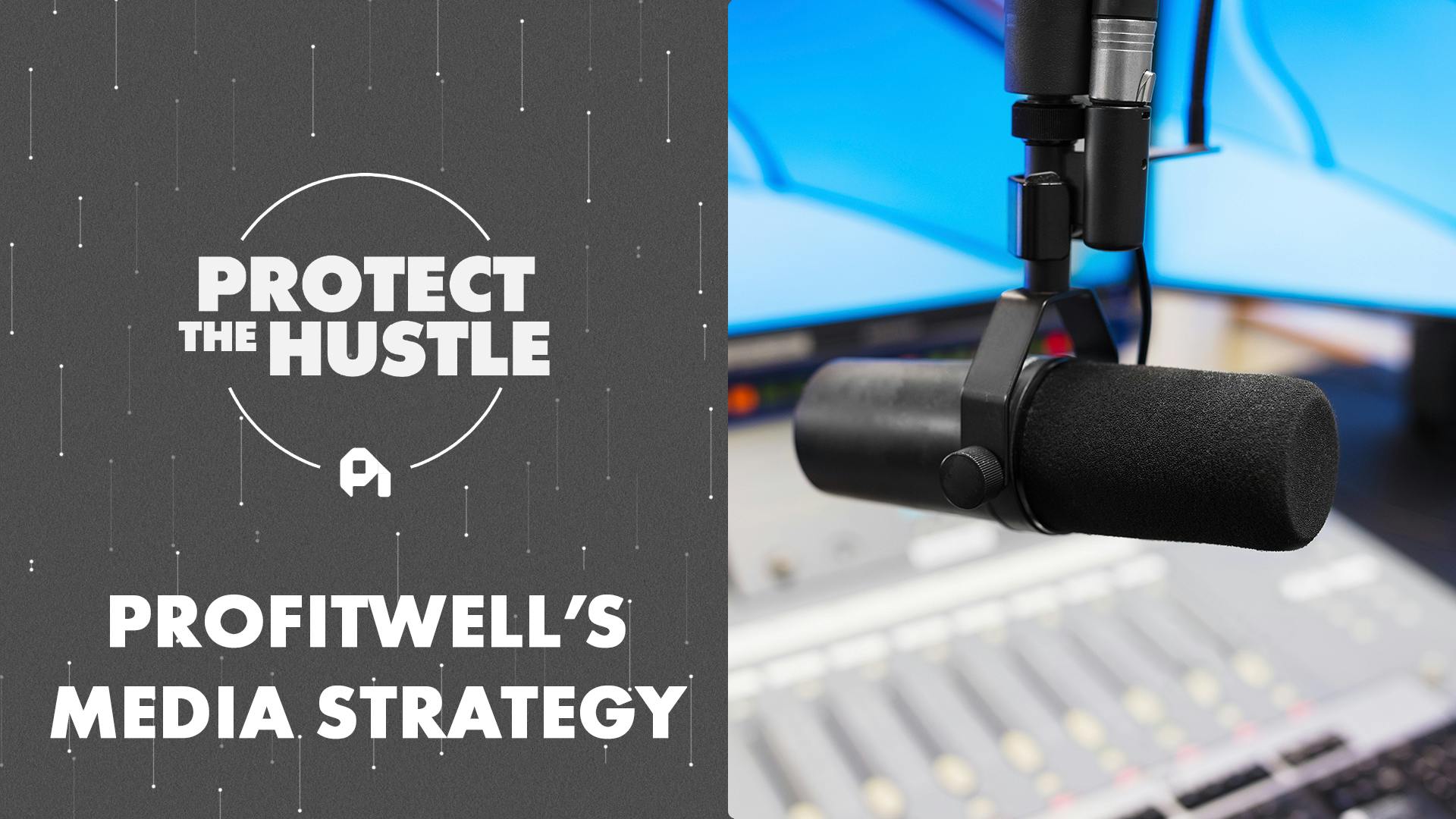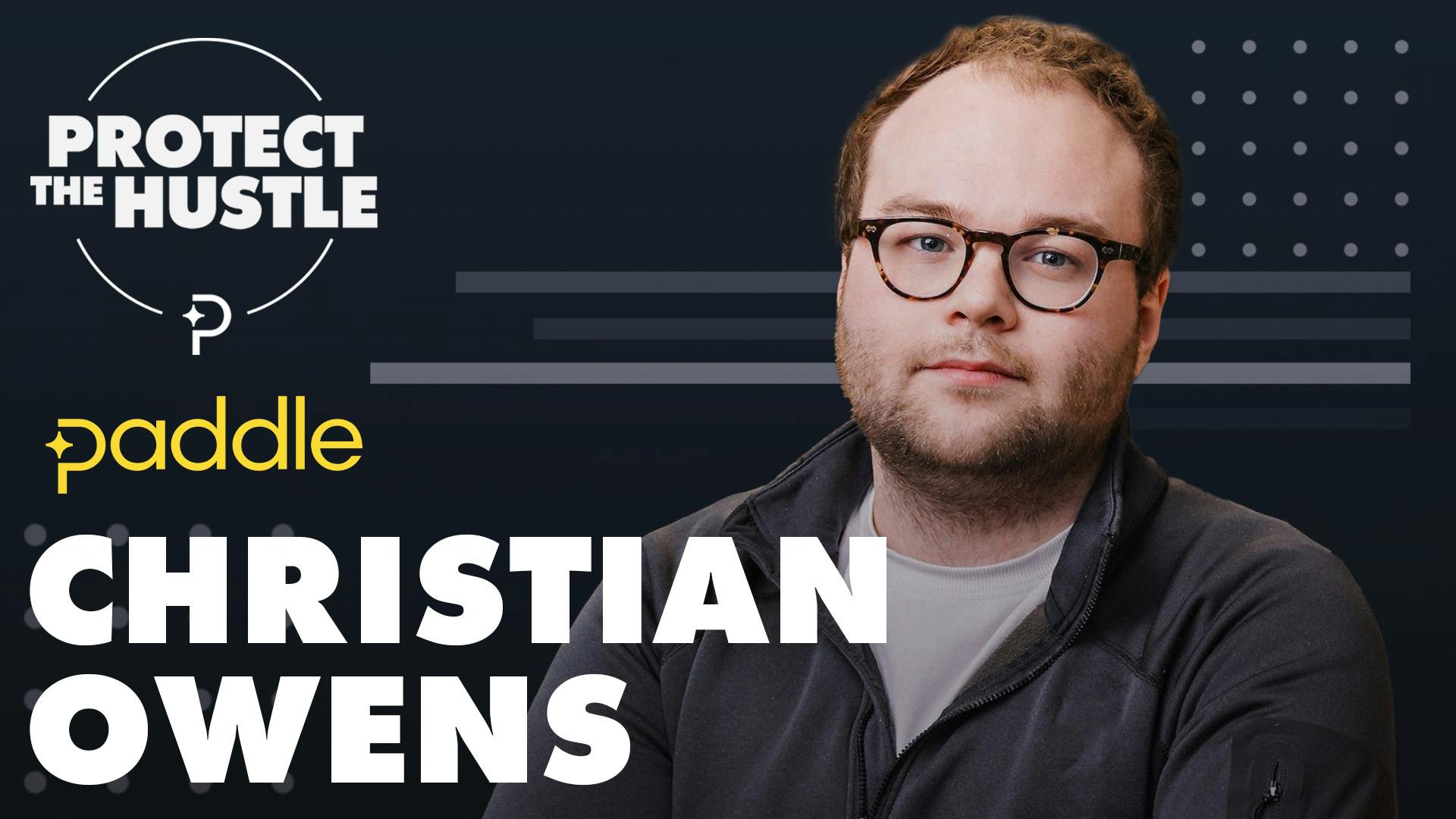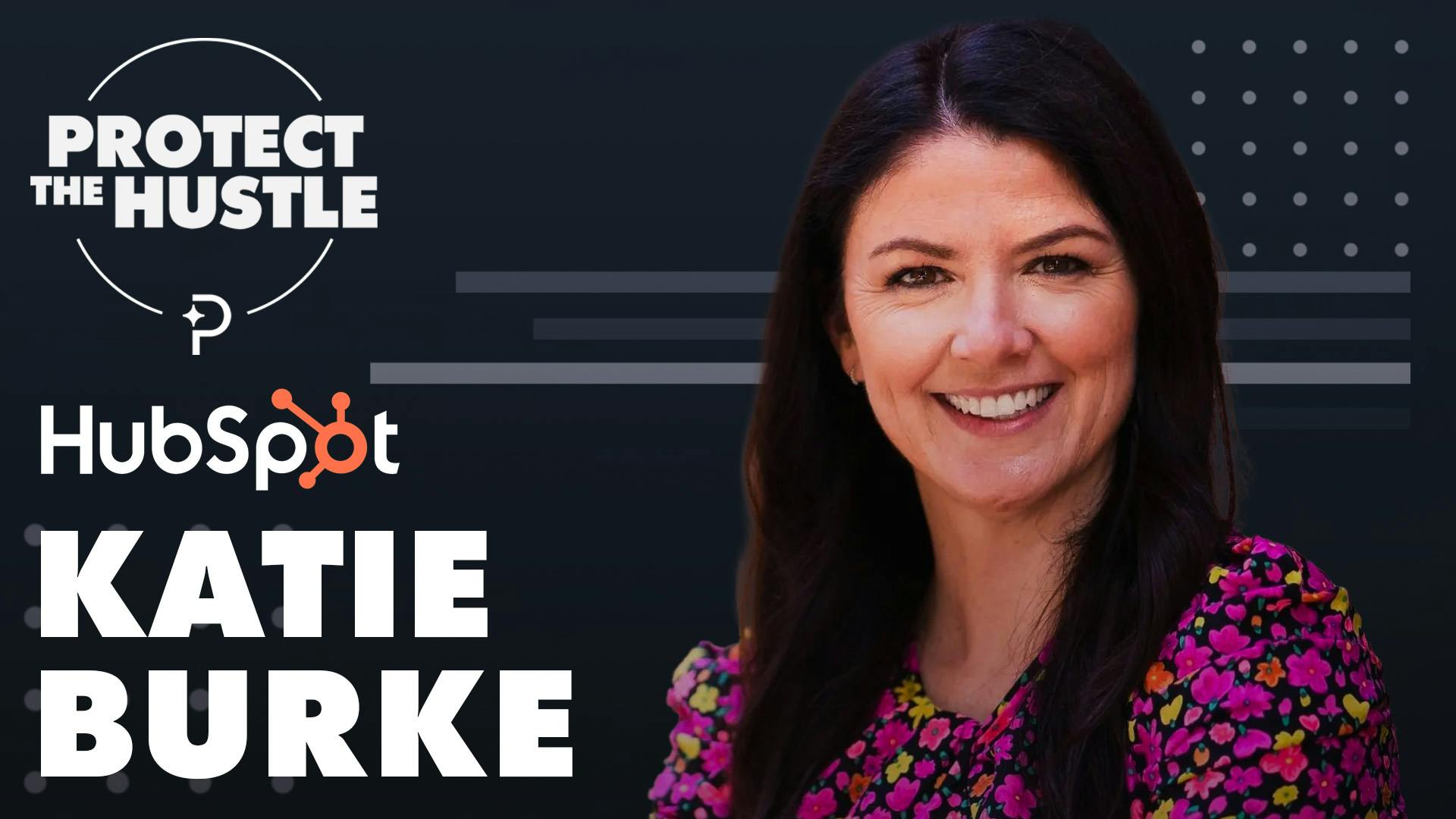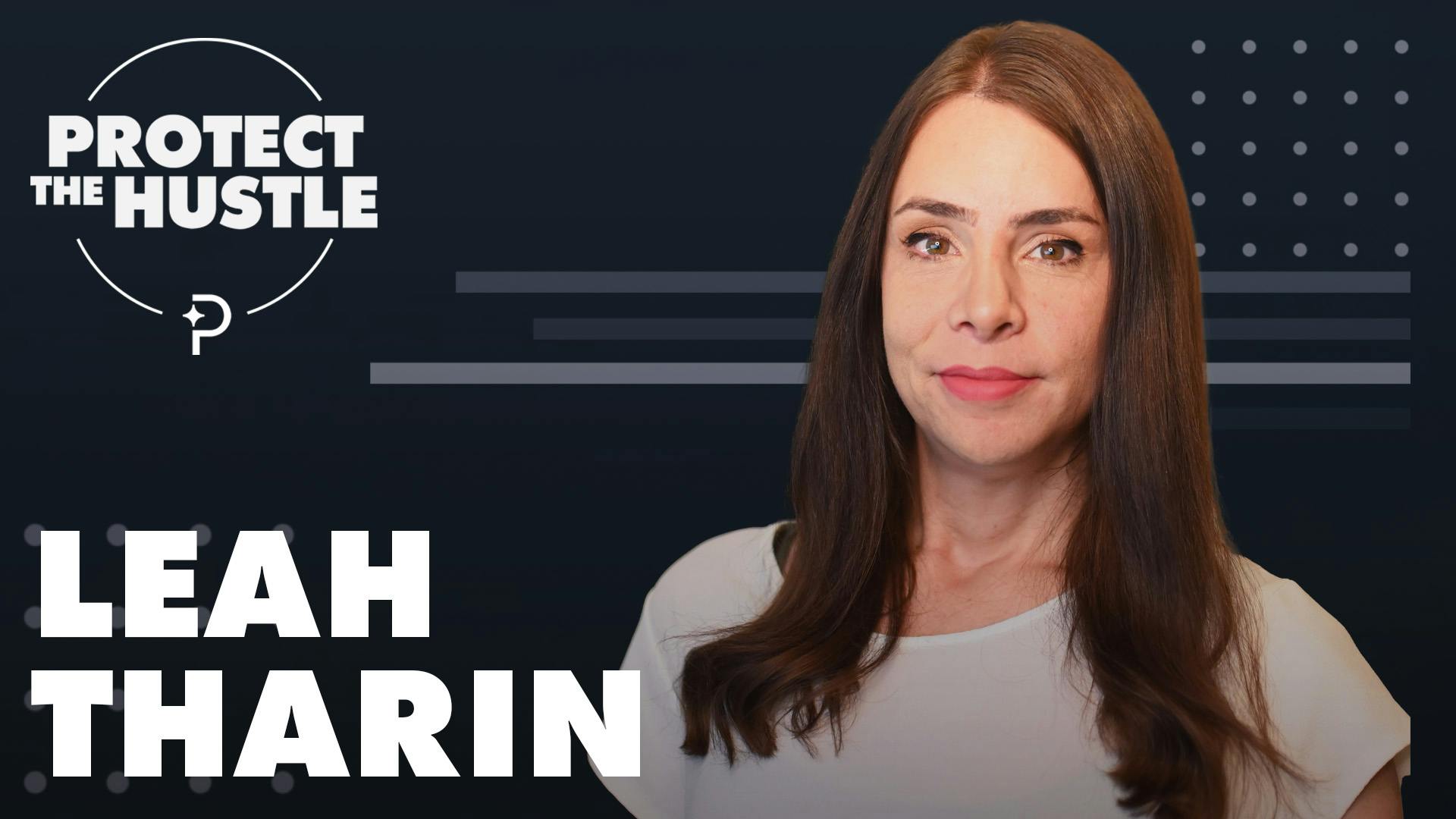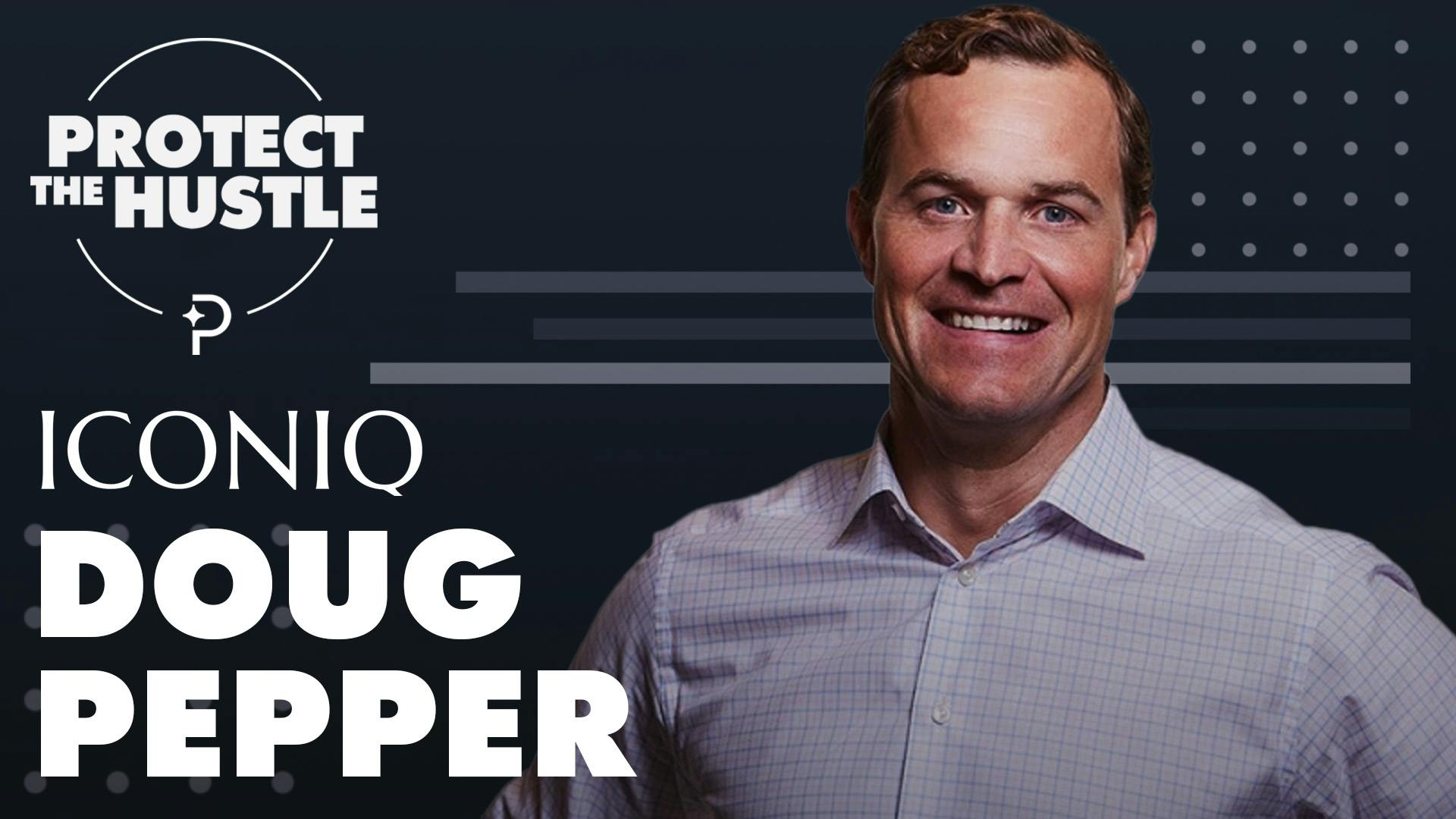
Mark Roberge on The Science of Scaling
This episode might reference ProfitWell and ProfitWell Recur, which following the acquisition by Paddle is now Paddle Studios. Some information may be out of date.
Please message us at studios@paddle.com if you have any questions or comments!
An Introduction to Mark Roberge
Running and I have, let's just say, an odd relationship, mainly because we just don’t have a good relationship. I’m built like a fluffy battering ram and battering rams aren’t known for their agility or endurance, they’re known for their brute force.
And as I’ve worked to drop, what I’m calling the Founder 75, I found that my approach to running was too elementary. Most of us think running is just starting to move quickly in a particular direction and go until you stop, and that's, ta-da—running.
But in reality when you talk to the top marathoners or sprinters in the world, you learn it’s all about pacing and breaking down the run into incremental stages and doing what needs to be done in each of those stages.
Sprinters spend years developing, literally, the first two seconds of a race coming off of the blocks. And marathoners learn the exact number of steps needed in the first two miles so they don’t push too quickly and burn fuel that they're going to need in mile 21. Every stage has a purpose and intention.
In the land of SaaS we also have these stages. We think it’s just about growth and getting more revenue, but each stage has a clear purpose. We initially start with getting to product market fit, and once you’ve reached that—well, actually what happens in Stage 2? How do you scale the thing you’ve gotten traction on? How quickly should you push revenue before you’re at risk of going way too fast and falling off the rails, or maybe you're actually moving too slowly?
These are the types of questions perfect for today’s guest—Mark Roberge, the founder of Stage 2 Capital. As a member of the founding team at HubSpot, Mark was instrumental in designing what is now considered the vital sales playbook for scaling in Stage 2 and beyond. After leaving HubSpot as a Chief Revenue Officer, he became a senior lecturer at Harvard Business School and now serves as the Managing Director for Stage 2 Capital, which helps develop SaaS companies in the stage where most of them are going too fast or too slow, and burn up all their energy. He’s going to help us set the pace for our own scaling.
Key Term
What is the science of scaling?
The science of scaling is a framework to help guide entrepreneurs through the scaling process. It helps answer two crucial questions: When should we scale sales and how fast? And it does so with a scientific data-driven approach.
The ebook, The Science of Scaling written by Mark Roberge himself, “defines each stage of scale, establishes a quantifiable measure for each stage, structures the sequence and signals of when to move from one stage to the next, and explores the optimal go-to-market design of each stage.”
Why is it important?
Too often, non-data-driven information is used to determine scaling strategies, which leads to false outcomes, and ultimately, failure. The Science of Scaling framework provides entrepreneurs with a solid, scientific, data-driven approach to help make informed decisions about their business in order to successfully scale.
Action plan:
What to do today:
- Follow Mark Roberge
- Schedule a time to discuss your company’s current scaling strategy, plans, and goals, as well as to discuss The Science of Scaling framework.
- Download Mark Roberge’s ebook, The Science of Scaling.
What to do next quarter:
Utilize the framework to determine the accurate answers—for your business—to the two, key questions: When should we scale sales and how fast? Do this before any decisions are made for the next quarter.
We’ve included a sneak preview to get you started straight from the ebook.
The framework consists of three stages: product-market fit, go-to-market fit, and growth and moat.
- Product-Market Fit, defined as generating customer success consistently
- Go-to-Market Fit, defined as generating customer success consistently and scalably
- Growth and Moat, which provides a scientific approach to the pace and defensibility of scale
The ebook is organized by the three stages of the framework, elaborating on the definition, measurement, and optimal execution required in each. Remember, the overarching mission is not slower growth, but healthier growth. The goal is not a short term “triple, triple, double, double” but a long-term “home run.”
Phase 1: Product-Market-Fit Section Summary
- We use “product-market-fit” to make critical decisions such as when to scale. However, we lack a scientific, data-driven definition of the term.
- Customer retention is the best statistical representation of product-market-fit. However, customer retention is a lagging indicator.
- Assuming long-term customer retention is the best statistical representation of product-market-fit then:
- Organizing our customers into acquisition cohorts and measuring their progress toward the customer retention early indicator enables early identification of product-market-fit.
Phase 2: Go-to-Market Fit Section Summary
- Go-to-market-fit is acquiring and retaining customers consistently and scalably.
- Strong unit economics is the best measure of scalability and, in turn, go-to-market fit. However, like customer retention, unit economics are lagging indicators.
- Therefore, we need to extract the long term unit economics target into short term go-to-market activity goals
Phase 3: Growth and Moat Section Summary
- We are ready to scale when we have product-market-fit and go-to-market fit
- Scale is a pace, not a single lump sum event
- We should scale as fast as possible without losing product-market and go-to-market fit.
- Use the speedometer to determine the moment we lose product-market or go-to-market-fit
Get the complete ebook, The Science of Scaling for the complete and thorough framework that is being taught at Stanford, Harvard and MIT, now, for the path to long-term success.
What to do within the next year:
After going through the framework you should have the answers to the two key questions that are key to scaling successfully. Utilize the data and output to make informed decisions and changes/updates to your strategy moving forward. Continuously evaluate your output and results as things are constantly evolving.
Who should own this?
Executives and leaders directly involved in the sales or revenue process, as well as your sales teams.
Do us a favor?
Part of the way we measure success is by seeing if our content is shareable. If you got value from this episode and write up, we'd appreciate a share on Twitter or LinkedIn.
00;00;00;23 - 00;00;05;02
Patrick Campbell
Running. And I have, let's just say, an odd relationship.
00;00;06;00 - 00;00;07;17
Patrick Campbell
Mainly because we just don't.
00;00;07;17 - 00;00;31;01
Patrick Campbell
Have a good relationship. I'm built like a fluffy battering ram, and battering rams aren't really known for their agility or endurance. They're known for their brute force. And as I've worked to drop what I'm calling the founder 75, I found that my approach to running was just too elementary. Most of us think that running is, you know, you start moving quickly in a particular direction and just go until you stop and that's start running.
00;00;32;14 - 00;01;00;19
Patrick Campbell
But in reality, when you talk to the top marathoners or sprinters in the world, you learn that it's all about pacing and braking down the run into incremental stages and doing what needs to be done in each of those stages. Sprinters spend years developing literally the first 2 seconds of a race coming out of the blocks, and marathoners learn the exact number of steps needed in the first two miles that they don't push too quickly and burn fuel, that they're going to need in mile 21.
00;01;01;08 - 00;01;26;24
Patrick Campbell
Every stage has a purpose and intention. In the land of SaaS, we also have these stages. We think it's just about growth and getting more revenue. But each stage has a clear purpose. We initially start with getting the product market fit, and once we've reached that well, actually what happens in stage two, how do you scale the thing that you've gotten traction on?
00;01;27;08 - 00;01;50;04
Patrick Campbell
How quickly should you push revenue before you're at risk of going way too fast and falling off the rails? Or maybe you're actually moving too slowly? These are the types of questions that are perfect for today's guest guests. Marc Roberge, founder of Stage two Capital. As a member of the founding team at HubSpot, Marc was instrumental in designing what is now considered the vital sales playbook for scaling in stage two and beyond.
00;01;50;14 - 00;02;08;03
Patrick Campbell
And after leaving HubSpot as a chief revenue officer, he became a senior lecturer at Harvard Business School and now serves as the managing director for Stage two Capital, which helps develop SaaS companies in the stage where most of them are going too fast or too slow and burn up all of their energy. He's going to help us set the pace for our own scaling.
00;02;08;13 - 00;02;33;11
Patrick Campbell
Coming up next from Profile Well Recur, it's Protect the Hustle. We explore the truth behind the strategy and tactics of B2B SaaS growth to make you an outstanding operator. On today's episode, Marc Roberge gets you on the right path to scale. We talk about how HubSpot developed a data driven sales playbook. The powerful potential of combining marketing and customer success, the science of scaling, leading indicators that signal a readiness.
00;02;33;11 - 00;02;33;29
Patrick Campbell
To scale.
00;02;34;17 - 00;02;42;21
Patrick Campbell
And what to do when scaling breaks.
00;02;46;19 - 00;02;49;10
Patrick Campbell
What's the biggest risk you've taken in your career so far?
00;02;49;25 - 00;03;26;26
Mark Roberge
Yeah, I was very risky early on. I mean, I guess it's either like starting up with stage two in the venture capital firm, putting a lot of like the brand and network behind that, which I think is the reason I'm doing this. Such a big impact potential. But I probably kind of lean into even back in the HubSpot days, you know, I was doing my MBA at MIT in 0405 and it's hard to remember back then, but like this was like just on the like dawn of the crash of oh one and, you know, we always joked at the time B2B and B2C stood for back to back and then back to consulting.
00;03;27;03 - 00;03;48;20
Mark Roberge
But like everyone was like rushing away from entrepreneurship. And so I was a pretty like, unusual person to still be like on the tech entrepreneurship wagon at that time. Like, all my friends were going in a very stable job that had probably a high probability of wealth creation and my career stability, and that was a big risk to have done that early on and stay true to it.
00;03;48;20 - 00;04;06;07
Mark Roberge
But it was just my passion. I want to I didn't want to do anything else. You know, I have been a tech entrepreneur for roughly 15 years. The last startup I was part of the founding team on was HubSpot. A couple of us met at the business, the MBA program for MIT and sort of launched the company out of that.
00;04;07;03 - 00;04;47;20
Mark Roberge
I spent ten years there as running sales CRO SVP of Global Sales through the IPO and then through the back end of that process was recruited into Harvard Business School to teach some of the first sales courses in the MBA level. So it's been a blast. I've been doing that for six years. One of the things I love about it, it gives me a lot of autonomy and encouragement actually to stay very active in practice and I choose to deploy those hours into the startup community that started as basically parachuted into a different company every quarter to spend a day, a week and just kind of study their go to market and then deliver a
00;04;47;21 - 00;05;09;23
Mark Roberge
go to market assessment to their board and management team. After about six weeks of hanging out there. And those opportunities are, you know, lockers that originated from the backers of HubSpot. So Sequoia, our general catalyzed Matrix, those types of folks and then over time, I was approached by a young investor at Bessemer to start the VC for the first VC firm run and backed by sales and marketing leaders.
00;05;09;23 - 00;05;44;17
Mark Roberge
And so that's something we did two years ago called stage two Capital. The idea really struck a chord with me as a missing ingredient, not just in venture capital, but in the overall entrepreneur ecosystem. And that has been amazing. It's sort of gone viral amongst my peers. We currently have 130 LPs that are largely go to market C-level executives from the public software companies across the country, whether it's Zoom, Atlassian, Dropbox, LinkedIn, Salesforce, Oracle, like Twilio, like, you name it.
00;05;44;17 - 00;05;54;20
Mark Roberge
And it's just been a humbling wave of support for the idea, which has been quite motivating. Fun one that is doing great and we're currently raising funds.
00;05;54;20 - 00;06;21;04
Patrick Campbell
You know, it's cool. Before we get into that HubSpot, obviously everyone's asked you about HubSpot before, but what I'm kind of curious about is, is obviously that sales team has has kind of been heralded as like one of the playbooks right? You know, it's kind of you got predictable revenue, right? Aaron Ross You know, that's the book that people read and then other people read your book as well as like really look to HubSpot as like this is kind of what you should emulate.
00;06;21;19 - 00;06;22;13
Patrick Campbell
Was there anything.
00;06;22;13 - 00;06;32;17
Patrick Campbell
Particular different that you feel about what HubSpot did versus other companies in their sales teams? Or is it more just like sticking to the fundamentals? Like how would how would you characterize that experience?
00;06;33;14 - 00;06;57;09
Mark Roberge
Yeah, yeah, there's a couple of things. So like you have to remember, it's really hard when we're coming out, you know, six. Like there weren't a lot of sales teams built from the ground up on an inside on the emotion. Okay. Like you have to remember like most almost all sales in the eighties and nineties was done in the field like knocking on doors largely because we didn't have the Internet yet.
00;06;58;00 - 00;07;23;10
Mark Roberge
You couldn't do like a Zoom or WebEx or whatever was hot at the time. And also like software wasn't deployed on the cloud, so it was just expensive and for a variety of reasons. And so I think it all started with, you know, Benioff's vision away of Salesforce and the cloud, right? And this whole like cloud movement. And once they move to the cloud, they decided to charge a monthly subscription which caused the opening price to go down.
00;07;23;14 - 00;07;43;15
Mark Roberge
And once the opening price went down, that movement, combined with the the the you know, these this type of communication mechanism that was now capable over the Internet and, you know, caused a catalyst behind it inside sales, all the emotion. So like that was like very like a new idea in oh six where we're starting the team today.
00;07;43;15 - 00;08;04;24
Mark Roberge
It's like, obviously that's the way you do it. So so that was one huge advantage we had was we were one of the first companies that could build like a sales team like that from the ground up. Now the other thing that that cause was it's hard to imagine this, but very, very few field sales teams and sales teams in general at that time were successful in getting any level of CRM adoption.
00;08;05;05 - 00;08;29;06
Mark Roberge
Okay. And and when you went to an inside sales motion, CRM adoption was no longer an issue like the inside rep had to use the CRM, and now all of a sudden we had a whole bunch of data. One of the first organizations. So that that was another big thing was to like to have and have created one of the first sales orgs that can be extraordinarily data driven because this new context.
00;08;29;17 - 00;08;55;06
Mark Roberge
So it's like that's one like early on accidental win that we had was as a young company we hired, I hired this like Salesforce admin because like there was no sales tech stock back then. It was basically just Salesforce, right? Like that's all you had. So I hired, I hired this admin for 50 GS, which is a lot for like a series, a company to basically soup up Salesforce for us.
00;08;55;17 - 00;09;17;23
Mark Roberge
So that like it was really easy for, for a rep to like log a call and send an email. It's all customized for them. So it was like a huge like there was a no brainer for them that they use Salesforce because it was like making their job faster. All this technology we now have didn't exist, right? And so that that, you know, kind of solidified our, our data access.
00;09;17;23 - 00;09;48;00
Mark Roberge
And then there's like how we used it. I mean, we were just like we had this theme at HubSpot, like in God We Trust all our spring data. We were just such a data driven organization, you know, I mean, the list goes on there, but I think it's like people can talk about being data driven, but to truly be like data driven, everything you do from hiring to demand gen to a line in sales and marketing, to training your reps, to coaching your raps, to forecasting like, you know, that's, I think one thing that where we stood out is just being so data driven that.
00;09;53;10 - 00;10;13;09
Patrick Campbell
It's kind of wild because my to be honest with you, like my first conception of you as a leader, like I heard, you know, through, you know, mutual friends and stuff like, Oh yeah. Mark Rebecca's right. And sales also serve. I had no conception of what a true sales team was. You know, the only sales I was in sales ops at Google, but that was for like the, you know, oh, there already have an account let's like grow their accounts like more.
00;10;13;09 - 00;10;16;01
Mark Roberge
Yeah they're different sales cycle there. Yeah.
00;10;16;01 - 00;10;36;25
Patrick Campbell
And so I was like oh it's going to be all about like the training and tactics and everything. And one of my biggest misconceptions that got shattered was, you know, when reading your book and also, you know, knowing you a bit here now is like recruiting. Yeah. And then everything's beyond the initial sale, right? Like the initial sale is just like the first piece of it.
00;10;36;25 - 00;10;51;20
Patrick Campbell
And so that was that was kind of fascinating that I think a lot of people have this conception of like, you know, the old Glengarry Glen Ross style sales leaders and stuff like that. And it's it's so much more technology, technology stack people than than I would ever have imagined.
00;10;52;22 - 00;11;26;29
Mark Roberge
Yeah. And growing. So I mean, it's like I've always coached my students at HBS like don't go into sales ops because it has a low ceiling on career progression. It's very hard to go from like sales ops in to say how to sales because head of sales is all about like hiring and managing lots of people. And in sales ops, you don't get that experience, however, because sales is so data driven, you're starting to see like early signs of the first generation of sales leaders that came up through ops because that is such an important skill set.
00;11;26;29 - 00;11;54;06
Mark Roberge
I think Yamini Rangan, who was chief customer officer at Dropbox and now is at HubSpot, comes to mind, you know, as someone that I believe kind of didn't come up through the quota carrying, you know, running sales team, but was more from an ops angle and, you know, like you start you think about the how the Dropbox and HubSpot sales are runs and you can see why a C-level executive with that skillset is so critical.
00;11;54;17 - 00;12;13;18
Patrick Campbell
Yeah, well it's also the kind of move with rev ops, right? Revenue operations. And what's kind of your take on that? Because right now I'm seeing a lot of it. Oh, you're just renaming sales ops, basically, you know, because, you know, they're not really combining marketing ops as much. And then customer success ops is so nascent. Like, I just don't see that in a lot of organizations.
00;12;13;18 - 00;12;15;00
Patrick Campbell
Like, what's your take on Rev ops?
00;12;16;05 - 00;12;34;11
Mark Roberge
Well, I think that's where it needs to go is, is to combine marketing and customer success. I mean, yeah, if they don't bring those in, then it really is just renaming Salesforce. But like I don't think it matters whether you call it rev ops or or ops or sales ops or whatever. It's just more like double clicking. And what exactly does it do?
00;12;34;24 - 00;12;53;14
Mark Roberge
And, you know, I think it's it's similar to the rise of the Chief Revenue officer title, which was like not common five years ago. And I think it was used in many different contexts. But I think that the purest and most valuable was that this is a role that can unify the customer experience across marketing, sales and customer success.
00;12;53;26 - 00;12;57;19
Mark Roberge
And I think that the movement to rev ops is symbolic to that as well.
00;12;57;19 - 00;13;18;17
Patrick Campbell
Yeah, it's kind of fascinating because you've seen you obviously saw a company from beginning to IPO, you've seen a ton of different companies. You've obviously seen a ton of folks through HBS as well. Like what's kind of funny is there's been all these shifts like, what are you seeing in the future here? Like, especially when it comes to like a revenue organization with, say, within an org.
00;13;18;29 - 00;13;41;26
Mark Roberge
I think we've scratched the surface like with air and by you know, we're still like we talk a big game, but when it gets down to like operational like there's we're still kind of do basic stuff on like forecasting and stages, etc.. So I think we're in the early innings of truly adopting AI at scale and in affecting practice.
00;13;42;03 - 00;14;08;04
Mark Roberge
You know, just in terms of like I've seen some like pretty cool plays coming up on just hiring profiles, you know, I mean, like there's no reason why a large organization like, say, Facebook shouldn't be able to use some form of whether it's machine learning or artificial intelligence to look at their 2000 sales reps and generate a customized hiring profile for the various roles that they have within various regions.
00;14;08;04 - 00;14;33;01
Mark Roberge
There's enough data to do that, and yet we're not we're not leaning into that. I think we're in that. Sales and marketing stack has been deployed reasonably well and is on like sort of like paid advertising, right? Where like you can just quickly run these permutations and like hone in for the same analogs exist in say, like things like SDR messaging that you'd say and like an outreach or a sales loft, right?
00;14;33;01 - 00;14;57;19
Mark Roberge
So like it's those types of things. I don't I don't think AI is going to sell for us anytime soon. You know, there's just a huge, like psychological human factor there that I don't think the technology's ready for, especially complex deals. But I think in all the supporting functions behind it, it can it can really help us to learn faster and more accurately.
00;14;57;19 - 00;15;11;24
Patrick Campbell
When you think a scaling, though, because you've you've seen so much context at this point like what what do companies get right with scaling? What do they get wrong with scaling? Like how should they scale? Like, we could probably unpack this for sure, but just curious in your take.
00;15;11;28 - 00;15;30;22
Mark Roberge
Yeah, that's my big work these days I call the science of scaling because that was like, that was my journey that four or five years after HubSpot was, you know, I saw these data points and helped all these sales teams pretty intimately. And I don't know, like a third became unicorns and two thirds didn't. And I was like, Why?
00;15;31;21 - 00;15;56;02
Mark Roberge
And it really came down to answering these two questions When should we scale sales and how fast? I think entrepreneurs and boards answering those questions incorrectly has killed a lot more startups than it shouldn't have felt. Right. And so that's really what I've been, you know, working a lot on, develop the framework now that I've been speaking about for a couple of years.
00;15;56;02 - 00;16;29;11
Mark Roberge
It's taught at Stanford, Harvard and MIT now. And it really is. It's the it's the investment lens for stage two. And it's, you know, you know, it will be my next book it currently sets is a 40 page e-book On stage two is website. It's basically like a three pronged sequential framework that helps entrepreneurs and boards use more of a scientific data driven approach to answering when should we scale sales and how fast, you know, it's basically product market fit, then go to market fit and growth and moat.
00;16;29;24 - 00;40;09;22
Mark Roberge
But there's a much more.
